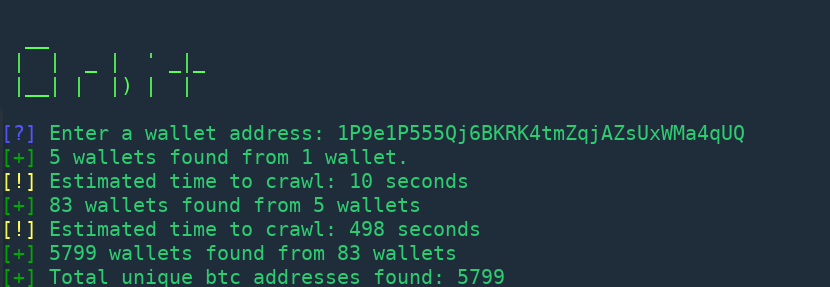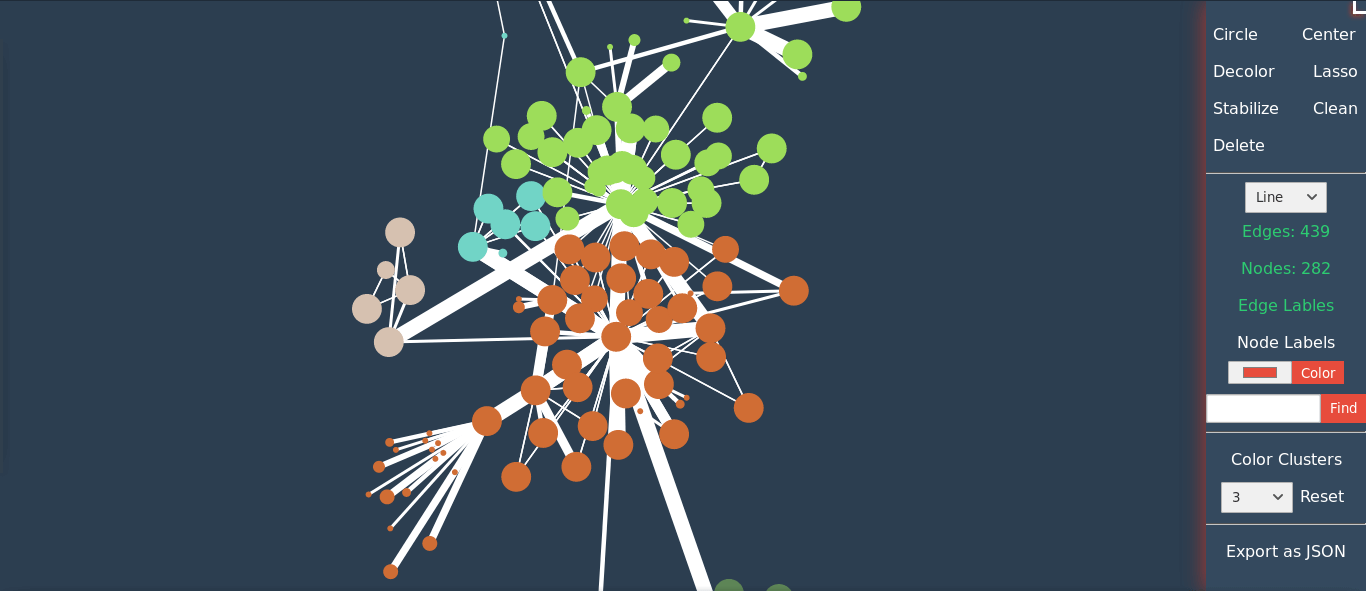Orbit draws relationships between crypto wallets using recursive crawling. Give it a blockchain based crypto wallet address and it will crawl 3 levels deep in transaction data to plot a graph out of the information.


Orbit Usage
Run orbit.py with python3 as follows
python3 orbit.py
Enter the wallet address
__
| | _ | ' _|_
|__| | |) | |
Enter a wallet address: xxxxxxxxxxxxxxx
Now orbit will scrape wallets through blockchain API and once its done, a json file will be generated. Next thing is to plot a graph for which we will be using quark framework .
Clone Quark and navigate to the Quark directory and feed the json file to quark.py as follows:
python quark.py /path/to/file.json
And that’s it! Your job is done here, open quark.html to see your graph.
Also Read Hindsight – Tool For Analyzing Web Artifacts Chrome Browser & Chromium-Based Applications
Warning
The size of nodes (dots) and edges (lines) depends on the transactions made by that address to other members of the scope.
So the size of nodes can be ridiculously big but don’t get scared, just click on stabilize option in the sidebar and leave the rest to quark.
Also, if the node lables are getting on the way, click on the Node Lables option to turn that off.
The last thing is that there are going to be a lot of nodes that aren’t interesting like a wallet that has made only one transaction. Such nodes will just make your graph ugly. To fix this, click on the clean option which will delete such insignificant nodes. More information about how to interact with the graph can be found on Quark’s readme.














.png)
